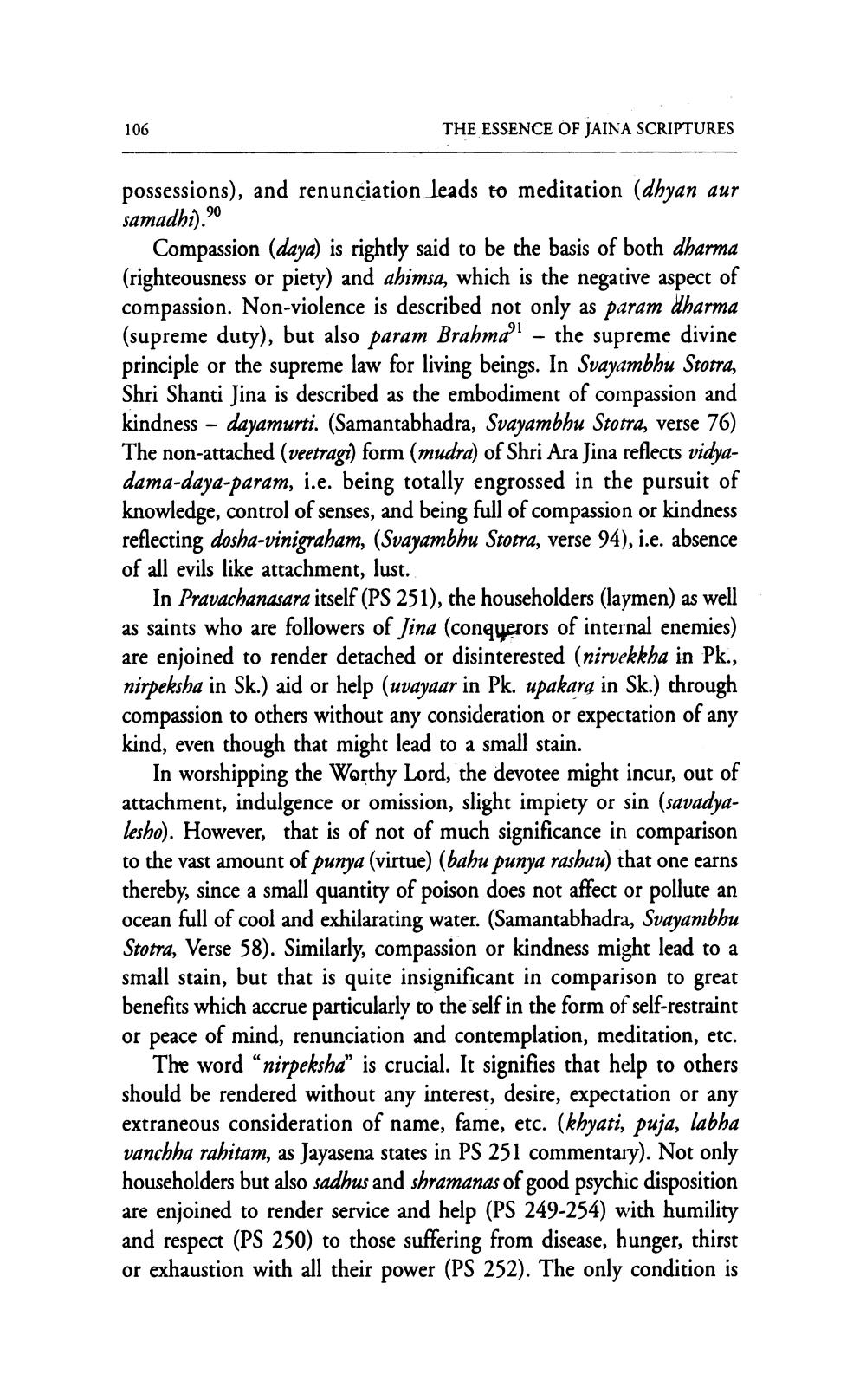________________
106
THE ESSENCE OF JAINA SCRIPTURES
possessions), and renunciation leads to meditation (dhyan aur samadhi).90
Compassion (daya) is rightly said to be the basis of both dharma (righteousness or piety) and ahimsa, which is the negative aspect of compassion. Non-violence is described not only as param dharma (supreme duty), but also param Brahma" - the supreme divine principle or the supreme law for living beings. In Svayambhu Stotra, Shri Shanti Jina is described as the embodiment of compassion and kindness – dayamurti. (Samantabhadra, Svayambhu Stotra, verse 76) The non-attached (veetragt) form (mudra) of Shri Ara Jina reflects vidyadama-daya-param, i.e. being totally engrossed in the pursuit of knowledge, control of senses, and being full of compassion or kindness reflecting dosha-vinigraham, (Svayambhu Stotra, verse 94), i.e. absence of all evils like attachment, lust.
In Pravachanasara itself (PS 251), the householders (laymen) as well as saints who are followers of Jina (conquerors of internal enemies) are enjoined to render detached or disinterested (nirvekkha in Pk., nirpeksha in Sk.) aid or help (uvayaar in Pk. upakarg in Sk.) through compassion to others without any consideration or expectation of any kind, even though that might lead to a small stain.
In worshipping the Worthy Lord, the devotee might incur, out of attachment, indulgence or omission, slight impiety or sin (savadyalesho). However, that is of not of much significance in comparison to the vast amount of punya (virtue) (bahu punya rashuu) that one earns thereby, since a small quantity of poison does not affect or pollute an ocean full of cool and exhilarating water. (Samantabhadra, Svayambhu Stotra, Verse 58). Similarly, compassion or kindness might lead to a small stain, but that is quite insignificant in comparison to great benefits which accrue particularly to the self in the form of self-restraint or peace of mind, renunciation and contemplation, meditation, etc.
The word “nirpeksha” is crucial. It signifies that help to others should be rendered without any interest, desire, expectation or any extraneous consideration of name, fame, etc. (khyati, puja, labha vanchha rahitam, as Jayasena states in PS 251 commentary). Not only householders but also sadhus and shramanas of good psychic disposition are enjoined to render service and help (PS 249-254) with humility and respect (PS 250) to those suffering from disease, hunger, thirst or exhaustion with all their power (PS 252). The only condition is




